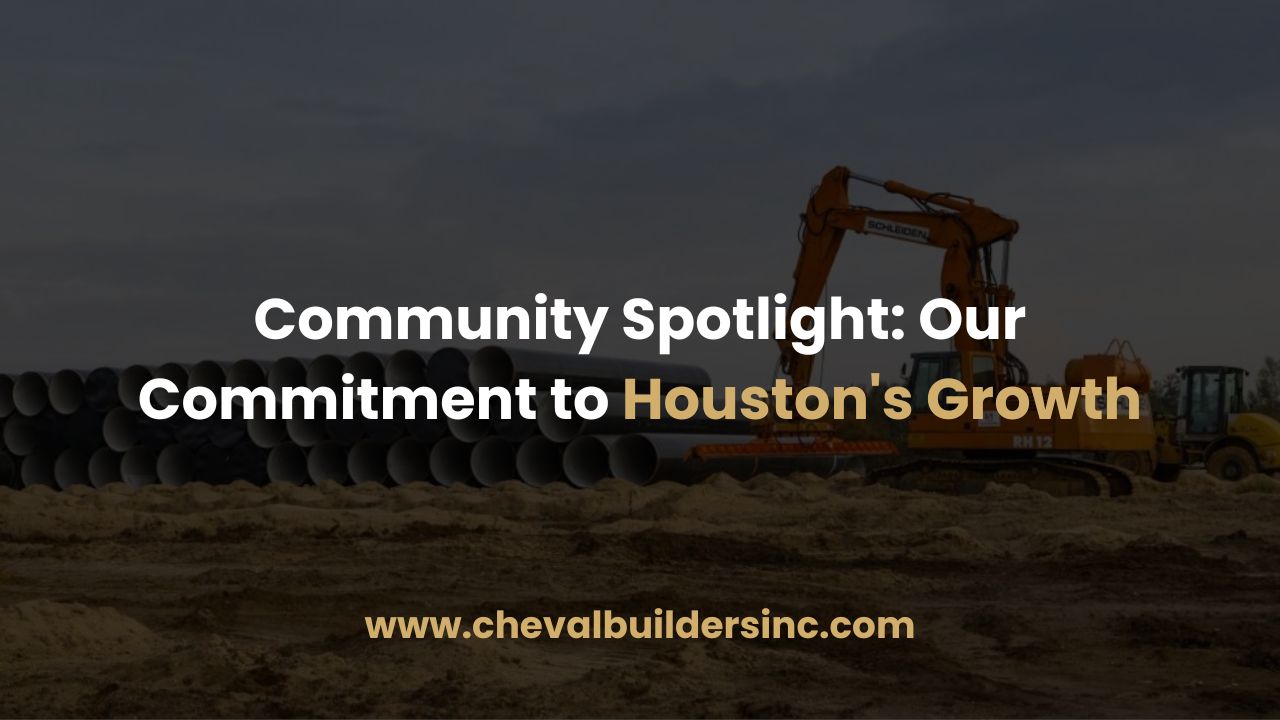When it comes to building or renovating a commercial property, one of the most crucial decisions you will make is the selection of a commercial general contractor. This decision can significantly influence the course and outcome of the project.
At Cheval Builders Inc, we understand the importance of this decision. To assist you on this journey, here are the top 10 questions to ask when interviewing a commercial general contractor, providing you with a comprehensive guide to ensure the success of your project.
10 Top Questions to Ask a Commercial General Contractor

1- How Long Have You Been in Business?
The first question to ask a potential contractor is about their business history. A company with a long history in the construction industry is likely to have experienced various project scenarios and overcome many challenges. This means they will have the knowledge and skills to handle unexpected situations that may arise during your project.
A contractor with a long history can also provide you with a portfolio of projects that they have completed. This portfolio can give you an idea of the quality and scope of their work, and whether they are the right fit for your project.
2- Are You Licensed for This Type of Work?
The second question to ask is whether the contractor is licensed for the type of work you need. A license is not just a piece of paper; it signifies that the contractor has met certain standards set by the government and the construction industry. It ensures that they have the necessary training and qualifications to carry out the work safely and to a high standard.
In addition, a licensed contractor will be familiar with local building codes and regulations, which means they will be able to handle any permits and inspections that may be required. Make sure you ask for a copy of their license and verify its validity with the issuing authority.
3- How Do You Handle Communication and Project Management?
Communication is key to the success of any project. It is vital that you and your contractor are on the same page at all stages of the project. Ask your potential contractor about their communication and project management strategies. How often will they update you on the progress of the project? What tools do they use to manage the project and ensure that all team members are aware of their responsibilities and deadlines?
A contractor with strong communication and project management skills will be able to keep the project on track and prevent misunderstandings that could delay the project or increase costs.
4- Do You Handle the Permitting Process and Inspections?
The permitting process can be complex and time-consuming, especially for large commercial projects. Your contractor should be familiar with the process and be able to handle all the necessary paperwork on your behalf.
Similarly, the contractor should be responsible for arranging and overseeing any required inspections. This includes ensuring that the work meets all relevant building codes and regulations. A contractor who takes responsibility for the permitting process and inspections will save you time and prevent potential issues down the line.
5- How Is Your Company Structured?
Understanding how a contractor’s company is structured can provide valuable insight into their operations. It can help you understand who will be working on your project, what their roles will be, and how they work together as a team.
For example, does the company have a dedicated project manager who will be your main point of contact throughout the project? Do they have their own team of tradespeople, or do they subcontract work to other companies? How do they ensure that all team members are trained and competent in their roles?
This information can give you a sense of the contractor’s capacity to manage your project efficiently and effectively.
6- How Many Projects Do You Have Going at One Time?
The number of projects a contractor is managing at the same time can give you an idea of their capacity. If they are juggling many projects, they may not be able to give your project the attention it needs. On the other hand, if they only have a few projects, it may indicate a lack of demand for their services, which could be a red flag.
Ask the contractor about their current workload and how they manage multiple projects. This can help you assess whether they have the resources and systems in place to handle your project effectively.
7- How Do You Plan on Handling Site Supervision and Subcontractors?
Site supervision is a crucial aspect of any construction project. It ensures that the work is carried out correctly and safely, and that the project stays on schedule. Ask the contractor about their approach to site supervision. Who will be on site to oversee the work? How often will they be there? What systems do they have in place to monitor the quality of the work?
If the contractor uses subcontractors, ask how they manage these relationships. Do they have long-standing relationships with their subcontractors? How do they ensure that the subcontractors deliver high-quality work and adhere to the project schedule?
8- What Is Your Approach to Resolving Disputes?
Despite everyone’s best efforts, disputes can sometimes arise during a construction project. These could be related to the quality of the work, changes to the scope of the project, cost overruns, or delays. It’s important to know upfront how the contractor handles such disputes.
Do they have a formal dispute resolution process in place? Are they open to mediation or arbitration if necessary? How have they handled disputes in the past? A contractor who approaches disputes with an open mind and a focus on problem-solving is likely to be a good partner for your project.
9- What Is Your Financial Stability?
Construction projects require significant financial resources. It’s important to choose a contractor who is financially stable and has the resources to see your project through to completion. A contractor who is struggling financially may cut corners, use substandard materials, or even abandon the project if they run out of funds.
Ask the contractor about their financial stability. Do they have a strong credit rating? Can they provide references from suppliers or banks? Do they have a history of paying their bills on time? A financially secure contractor is a safer bet for your project.
10- Do You Have Insurance?
Construction work comes with inherent risks. Accidents can happen, property can be damaged, and people can get injured. That’s why it’s essential to ensure that your contractor has the right insurance coverage.
At a minimum, they should have general liability insurance, which covers property damage and bodily injury caused by the contractor’s work. They should also have workers’ compensation insurance, which covers injuries to their employees. Ask to see proof of insurance, and check that the coverage amounts are adequate for your project.
At Cheval Builders Inc, we believe in transparency and professionalism. We are always ready to answer these questions and any others you may have. Our team of experienced commercial general contractors, offering top-notch commercial general contracting services in Houston, is committed to delivering high-quality work and exceptional customer service.
Contact us today to learn more about our services and how we can help make your Houston-based construction project a success.



